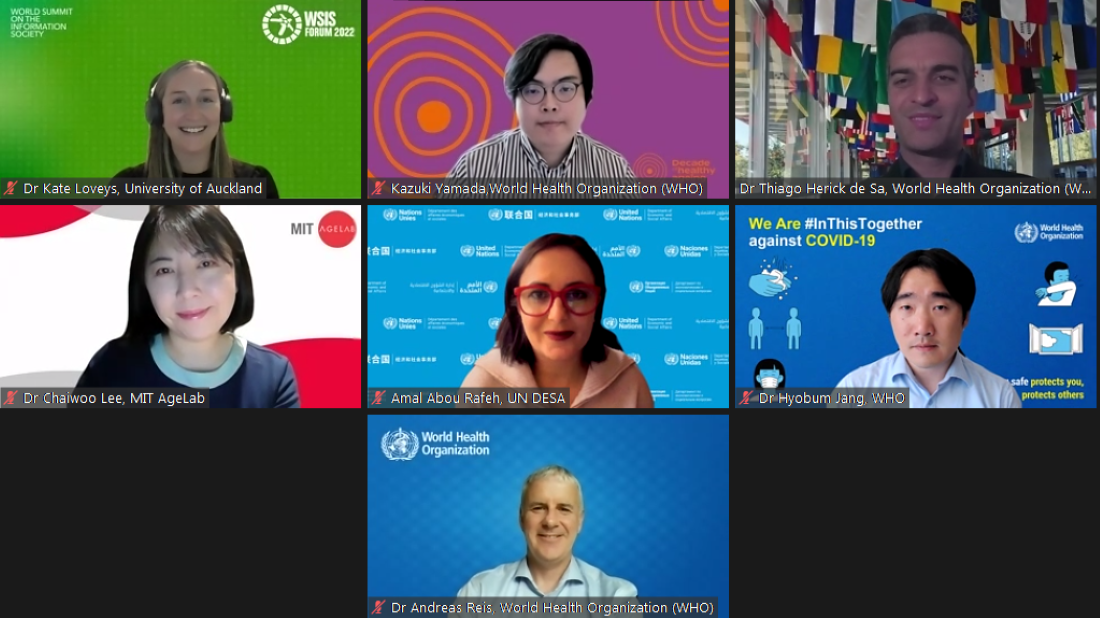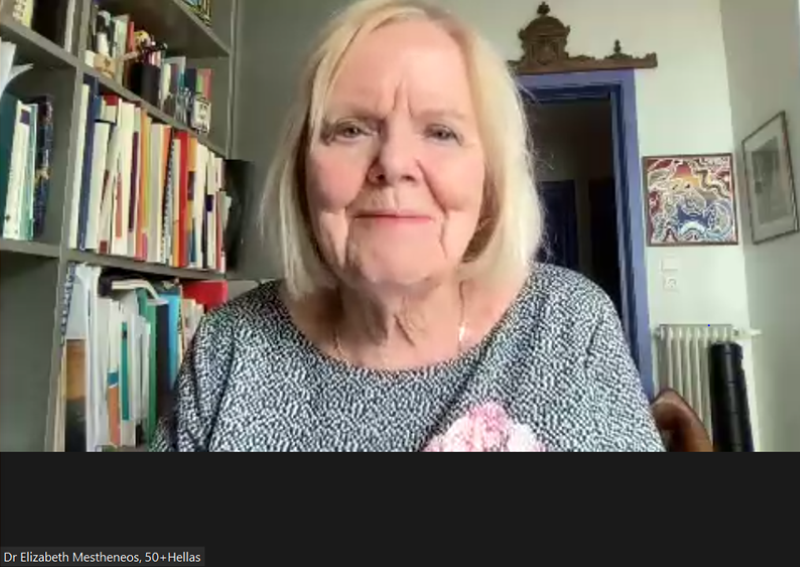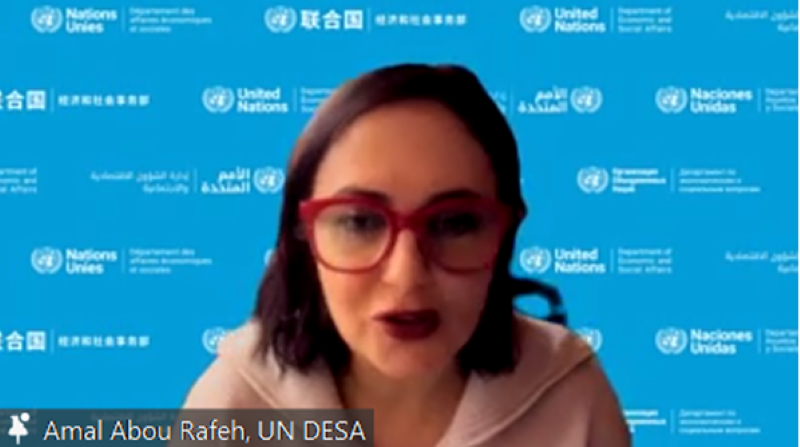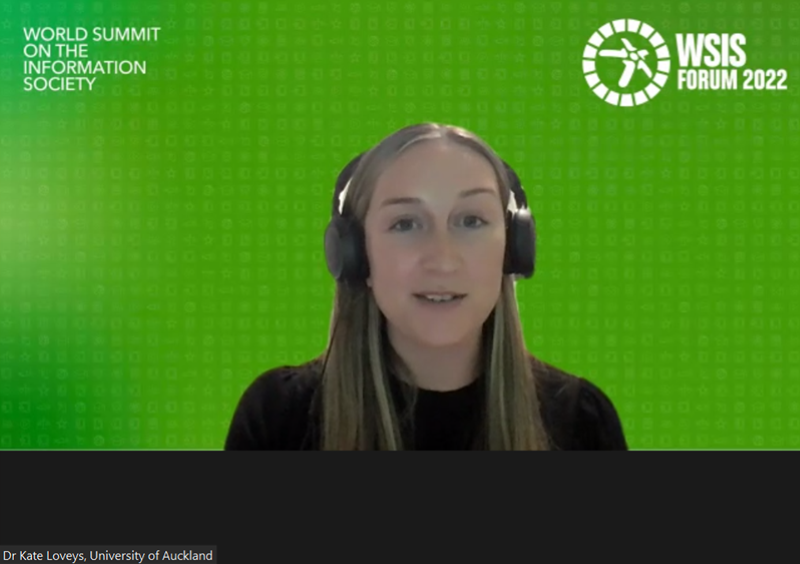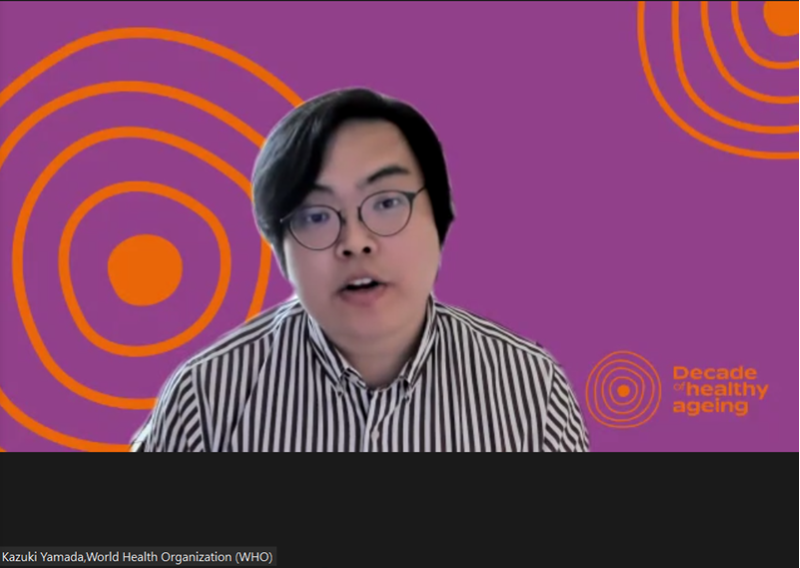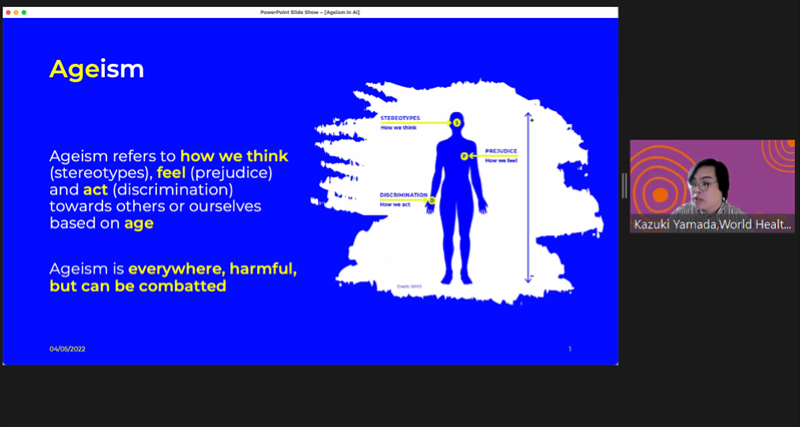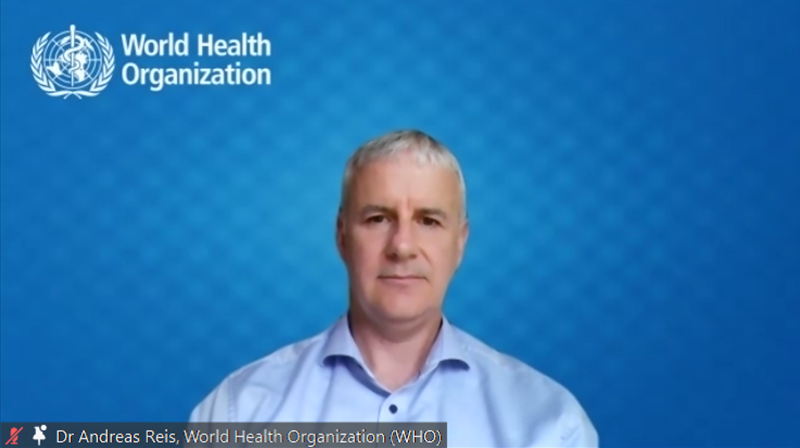Harnessing artificial intelligence ethically for the UN Decade of Healthy Ageing
AGE Platform Europe / Global Campaign to Combat Ageism / Global Coalition on Ageing / University of Auckland / World Health Organization
Session 244
The use of artificial intelligence (AI) in technologies aimed at fostering healthy ageing are receiving growing attention across regions and sectors. In particular, AI is being looked to as a promising way to address resourcing challenges for areas crucial for improving the lives of older people, their families, and their communities—such as the provision of long-term care and the processing of Big Data to better address older people’s needs. However, the UN International Day of Older Persons 2021 through the theme ‘Digital Equity’ also highlighted the need to ensure that the needs and perspectives of older people are at the centre of any implementation of AI if we are to avoid exacerbating existing inequalities and discrimination in later life.
This session will encourage participants to reflect on both the promises and ethical considerations of the use of AI in the implementation of the UN Decade of Healthy Ageing. It will also especially focus on the need for cross-sectoral collaboration beyond the IT or private sector in ensuring that AI-powered technologies are harnessed in ways that are #AddingLifeToYears.
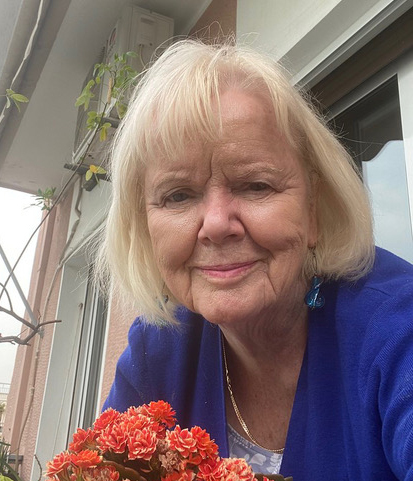
Dr. Elizabeth Mestheneos, a UK trained sociologist and academic, moved to Greece in 1983, becoming an independent social researcher in 1988. She has published over 50 articles / chapters on subjects including ageing e.g. family care, employment, new technology (see Research Gate).
She co-founded in 2005 and was MD for 10 years of the NGO “50+ Hellas” (www.50plus.gr). From 2003 she served on the Board of AGE-Platform Europe, and its elected President 2008-2011 (www.age-platform.eu). She is active as advisor, juror, and evaluator on EU funded projects concerning new technologies, accessibility, and the human rights of older people. She is Emeritus Board member of the Hellenic Association for Gerontology and Geriatrics and supports the Greek e-library of Gerontology and Geriatrics. She served on the Board of the International Federation on Ageing 2008-2014.

Chaiwoo is a Research Scientist at the MIT AgeLab. She received her Ph.D. from the Engineering Systems Division at MIT. Her doctoral dissertation focused on identifying factors of older adults’ technology adoption and incorporating them into the user-centered design of technology-enabled products and services. Currently, her research employs a holistic framework that includes social and psychological aspects, as well as physical and technical dimensions, in the design of technology systems.
Prior to working at the AgeLab, she has participated in a number of industry-funded projects on usability testing, kansei engineering, and user behavior analysis. She received her M.S. and B.S. from the Department of Industrial Engineering at Seoul National University, Korea.
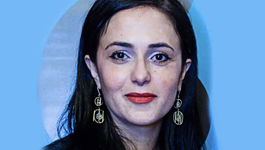
Amal Abou Rafeh is Chief, Programme on Ageing Section at the United Nations Department of Economic and Social Affairs in New York. She serves on the Secretariat of the General Assembly's Open-ended Working Group on Ageing and is a member of the Steering Committee of the Titchfield City Group on Ageing-related Statistics and Age-disaggregated Data.
Amal joined the United Nations in 2001, working in the areas of social policy, sustainable development, and demography, and served on the Secretariats of the World Summit on Sustainable Development (2002) and the High-level Meeting on Youth (2011). She held positions in Beirut and New York. Before joining the United Nations, Amal lectured and taught on analysis of social and demographic data.
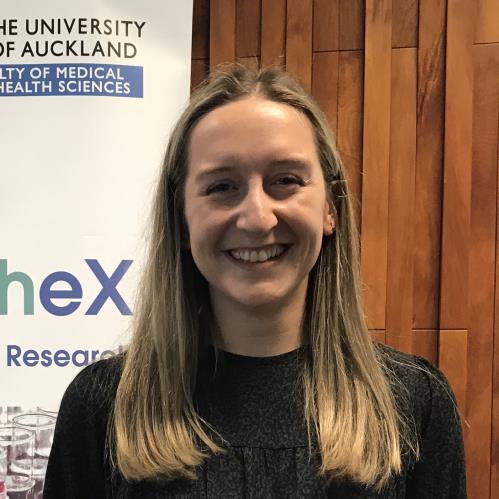
Kate Loveys (PhD) is an Honorary Research Fellow at the University of Auckland School of Medicine and a Postdoctoral Research Associate at Soul Machines in Auckland, New Zealand. Kate’s research focuses on developing and evaluating artificial intelligence-enhanced interventions in psychology and aged care. She has conducted research in the areas of virtual humans, natural language processing, and robotics. Kate serves as an expert panel member to the ITU/WHO Focus Group on Artificial Intelligence for Health’s Clinical Evaluation subgroup, where she contributes to the development of global guidelines for evaluating AI technologies in healthcare.

Thiago Herick de Sa holds a degree in Sports Science, and Masters and PhD degrees in Public Health. He started his career as a physical educator, working with older people at hospitals, primary care settings and households in Brazil. From 2010, Thiago worked as a researcher in Brazil and in the UK, with a track record of scientific publications in high-impact journals. Thiago joined WHO in 2017 to support the work around urban, transport and health, including the development of WHO’s Urban Health Initiative (ongoing) and WHO’s Urban Health Research Agenda (2022). He also led the development of several technical resources such as the Sourcebook on Integrating Health in Urban and Territorial Planning (2020) and the adaptation for global use of the HEAT tool (2021). In 2022, Thiago joined the Department of Social Determinants of Health to lead the work on Age-friendly Environments, including the Global Network for Age-friendly Cities and Communities.
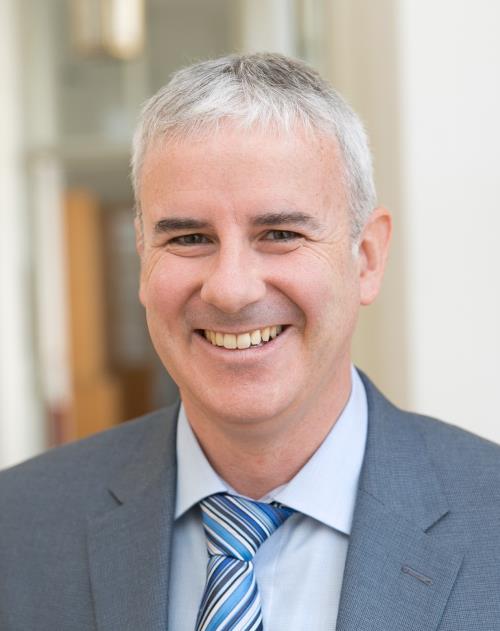
Andreas Alois Reis (PD, MD, MSc) is the Co-Unit Head of the Health Ethics & Governance Unit at WHO in Geneva, Switzerland.
After medical studies and practice in internal medicine in Germany, France and Chile he pursued studies in health economics and obtained a post-graduate degree in biomedical ethics. His work focuses on ethical aspects of infectious diseases, public health surveillance, health research, and AI.
He has lectured and organized trainings for WHO in more than 50 countries and serves on the editorial boards of Public Health Ethics and Monash Bioethics Review. He has published widely and is the co-editor of four books on health ethics.
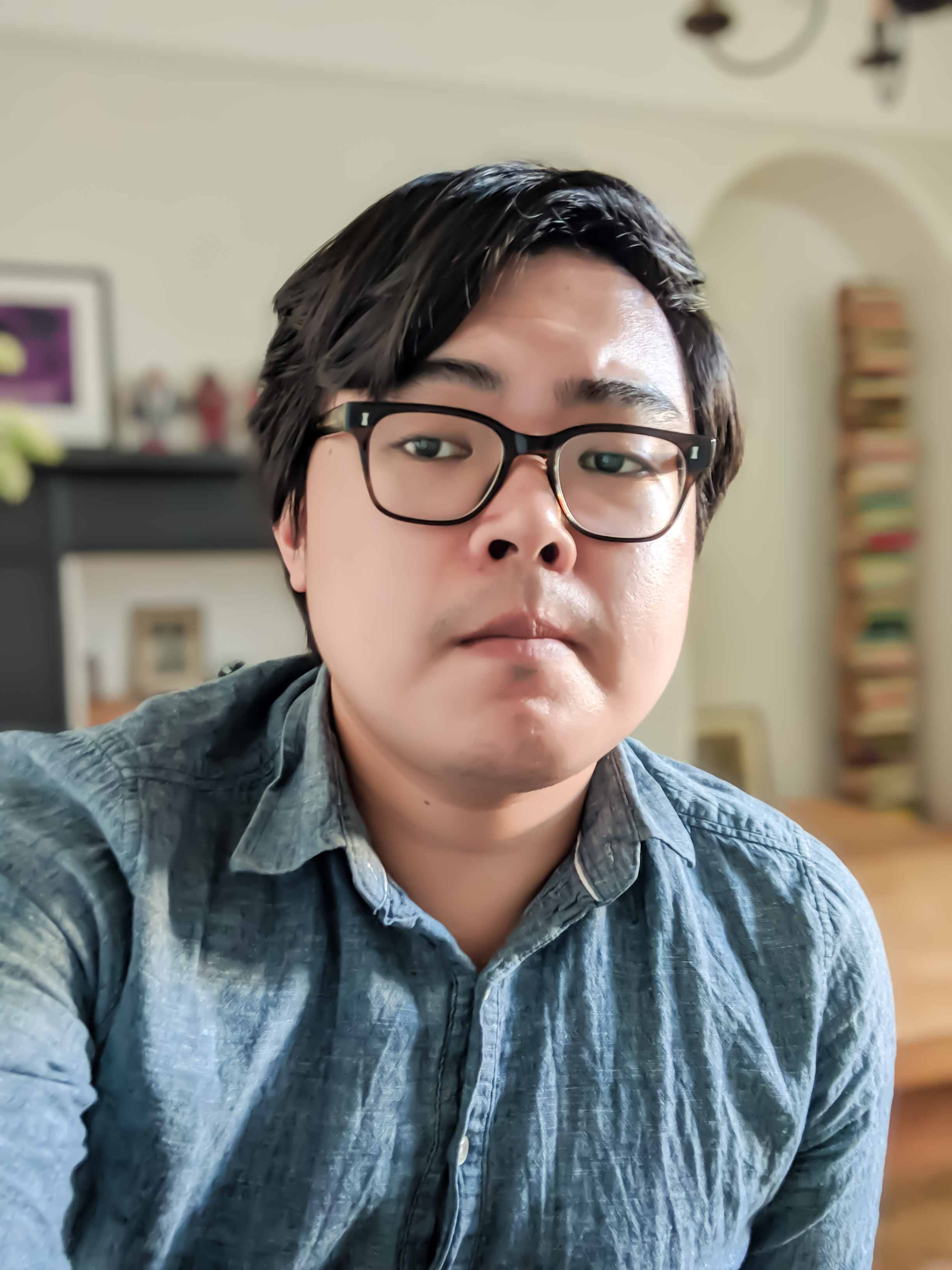.jpg?maxwidth=500)
Kazuki Yamada supports the implementation of UN Decade of Healthy Ageing (2021-2030) through management of its communications and brand, and as administrator and project manager of the Decade’s knowledge exchange Platform.
Kazuki is a Japanese national. He has supported WHO’s work on healthy ageing from the perspective of communications and digital connectivity for over 5 years. Before joining WHO, Kazuki worked for HelpAge International in support of the Age Demands Action campaign, and operated as a designer and strategic communications consultant in the private sector for over 7 years. Kazuki is currently completing a joint PhD in the medical humanities with the University of Exeter, UK and the University of Queensland, Australia, and holds an MA in Ageing & Society from King’s College London as well as a BSc (Hons) in Biomedical Science from the Ateneo de Manila University, Philippines.
-
 C1. The role of governments and all stakeholders in the promotion of ICTs for development
C1. The role of governments and all stakeholders in the promotion of ICTs for development
-
 C2. Information and communication infrastructure
C2. Information and communication infrastructure
-
 C4. Capacity building
C4. Capacity building
-
 C5. Building confidence and security in use of ICTs
C5. Building confidence and security in use of ICTs
-
 C6. Enabling environment
C6. Enabling environment
-
 C7. ICT applications: benefits in all aspects of life — E-health
C7. ICT applications: benefits in all aspects of life — E-health
-
 C7. ICT applications: benefits in all aspects of life — E-environment
C7. ICT applications: benefits in all aspects of life — E-environment
-
 C10. Ethical dimensions of the Information Society
C10. Ethical dimensions of the Information Society
-
 Goal 3: Ensure healthy lives and promote well-being for all
Goal 3: Ensure healthy lives and promote well-being for all
-
 Goal 5: Achieve gender equality and empower all women and girls
Goal 5: Achieve gender equality and empower all women and girls
-
 Goal 8: Promote inclusive and sustainable economic growth, employment and decent work for all
Goal 8: Promote inclusive and sustainable economic growth, employment and decent work for all
-
 Goal 9: Build resilient infrastructure, promote sustainable industrialization and foster innovation
Goal 9: Build resilient infrastructure, promote sustainable industrialization and foster innovation
-
 Goal 10: Reduce inequality within and among countries
Goal 10: Reduce inequality within and among countries
-
 Goal 11: Make cities inclusive, safe, resilient and sustainable
Goal 11: Make cities inclusive, safe, resilient and sustainable
-
 Goal 16: Promote just, peaceful and inclusive societies
Goal 16: Promote just, peaceful and inclusive societies
